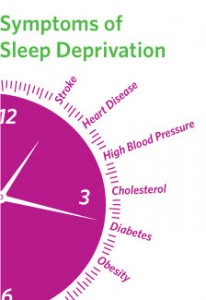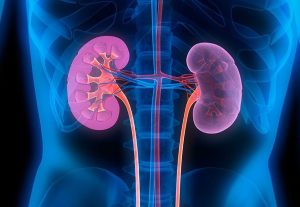 As daylight savings time approaches, we are facing shorter periods of darkness. Our clocks will “spring forward” one hour on March 8, causing us to lose an hour of sleep. During National Sleep Awareness Month, we want to remind individuals of the importance of adequate sleep and how the lack of it can cause health problems.
As daylight savings time approaches, we are facing shorter periods of darkness. Our clocks will “spring forward” one hour on March 8, causing us to lose an hour of sleep. During National Sleep Awareness Month, we want to remind individuals of the importance of adequate sleep and how the lack of it can cause health problems.
At least 40 million Americans suffer from chronic, long-term sleep disorders each year, and an additional 20 million experience occasional sleeping problems.[i] Untreated, these sleep disorders have been linked to hypertension, heart disease, stroke and other chronic diseases.[ii]
Insomnia can be classified as either acute or chronic (three nights per week for three months or longer) and can be triggered by any of the following factors:[iii]
- Sleep Apnea or other disorder
- Eating/drinking habits
- Restless leg syndrome
- Depression
- Shift working
- Frequent flyers
- Medical illness causing pain
While some of these triggers can’t be controlled on your own or without medication, others can be. It’s important to know which of these you can manage yourself to help improve your sleep.
Creating More Effective Sleep Habits:
For those who may struggle with sleep on a regular basis, there are a number of ways one can improve their sleep.
According to the National Sleep Foundation, the following habits can be followed to ensure a good night’s sleep:
- Set a schedule: Try to stick to the same bedtime and wake up time – yes, even on the weekends
- Practice a relaxing bedtime ritual
- Avoid naps – especially in the afternoon
- Exercise daily
- Create an ideal sleep environment
- Sleep on a comfortable mattress and pillow
- Use bright light to help manage your circadian rhythms
- Avoid alcohol, cigarettes, and heavy meals in the evening
- Wind down
- If you aren’t tired when you head to bed, try to do something relaxing until you feel tired
In our next blog article we will discuss how our innovative service, Risk IQ, can help rank an applicant based on their medical conditions and identify hidden health concerns that are not always apparent. We will also explore options for getting a better night’s sleep and reducing the health impacts of sleep deprivation.
******************************
[i] As reported by the National Institutes of Neurological Disorders and Stroke
[ii] MayoClinic.org
[iii] Sleepfoundation.org




















At least 40 million Americans suffer from chronic, long-term sleep disorders each year, and an additional 20 million experience occasional sleeping problems.[i] Untreated, these sleep disorders have been linked to hypertension, heart disease, stroke and other chronic diseases.[ii]
Insomnia can be classified as either acute or chronic (three nights per week for three months or longer) and can be triggered by any of the following factors:[iii]
While some of these triggers can’t be controlled on your own or without medication, others can be. It’s important to know which of these you can manage yourself to help improve your sleep.
Creating More Effective Sleep Habits:
For those who may struggle with sleep on a regular basis, there are a number of ways one can improve their sleep.
According to the National Sleep Foundation, the following habits can be followed to ensure a good night’s sleep:
In our next blog article we will discuss how our innovative service, Risk IQ, can help rank an applicant based on their medical conditions and identify hidden health concerns that are not always apparent. We will also explore options for getting a better night’s sleep and reducing the health impacts of sleep deprivation.
******************************
[i] As reported by the National Institutes of Neurological Disorders and Stroke
[ii] MayoClinic.org
[iii] Sleepfoundation.org